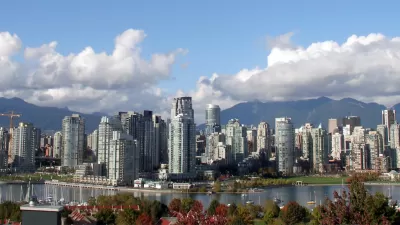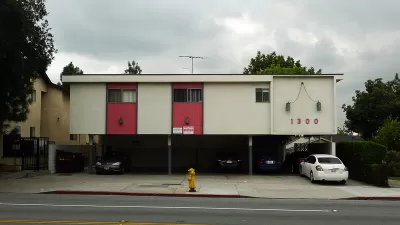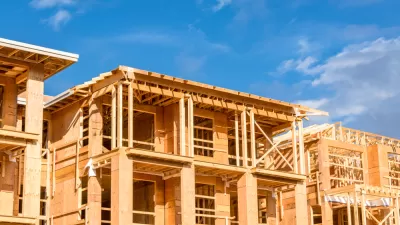Planning issues are often considered to be conflicts between the interests of different groups, such as neighborhood residents versus developers, or motorist versus transit users. But planning concerns the future, so it often consists of a conflict between the interests of our current and future selves.
Planning issues are often considered to be conflicts between the interests of different groups, such as neighborhood residents versus developers, or motorist versus transit users. But planning concerns the future, so it often consists of a conflict between the interests of our current and future selves.
For example, I have relatives who live in the city of Vancouver, which is developing an Ecodensity Policy that will increase infill development, particularly affordable housing and commercial services along major public transit corridor. It's a controversial policy with lots of opposition from residents who assume that it contradicts their interests. "It will just increase traffic and parking problems," they object. They should think again. They may want affordable housing and better transport options in the future.
For example, one of my relatives who opposes Ecodensity lives in a nice old, relatively inexpensive apartment in a desirable Vancouver neighborhood and drives to work every day. Sometime in the future her landlord will probably raise the rent or redevelop the building, forcing this woman to search of more affordable housing, while increasing urban traffic, rising fuel prices and aging may make driving more difficult. At that time she may benefit a lot from Ecodensity. Even if she moves into an older apartment and continues to drive she will benefit from overall reductions in housing prices and traffic congestion. Vancouver housing will not become really cheap, nor will traffic congestion disappear, but Ecodensity should significantly reduce these problems, making her future self better off. This may even determine whether or not she can continue to live in one of the world's most livable cities.
Imagine what a message from yourself a couple decades in the future might say concerning the type of development policies your community should establish now. If you are lucky and selfish the message might favor restrictions on affordable, infill housing and automobile-oriented transport planning. However, if your future self might be physically disabled or poor, or concerned about physically and economically disadvantaged neighbors, your future self will want lots of affordable housing located in areas with good travel options, and plenty of local services that support healthy and happy lifestyles, such as local parks and inexpensive shops. Wow, we just reinvented Ecodensity!
Planning decisions we make today will affect our quality of life in coming years and decades. Since our future condition is unknowable, it makes sense to create communities that do a really good job of caring for disadvantaged people, because that could be us.
Memo from future self, "Hope for the best but prepare for the worst."

Alabama: Trump Terminates Settlements for Black Communities Harmed By Raw Sewage
Trump deemed the landmark civil rights agreement “illegal DEI and environmental justice policy.”

Study: Maui’s Plan to Convert Vacation Rentals to Long-Term Housing Could Cause Nearly $1 Billion Economic Loss
The plan would reduce visitor accommodation by 25% resulting in 1,900 jobs lost.

Planetizen Federal Action Tracker
A weekly monitor of how Trump’s orders and actions are impacting planners and planning in America.

Grand Rapids Mayor Proposes Garage Conversion Plan
The mayor says allowing homeowners to convert garages to dwelling units could alleviate the city’s housing shortage.

Baltimore Ordered to Improve Sidewalk Accessibility
The city is one of many to face lawsuits for failing to comply with the Americans with Disabilities Act.

This Toronto Suburb Has More Bus Riders Than Columbus, Ohio
Brampton, Ontario used gradual improvements in service to prove that if you build it, they will ride.
Urban Design for Planners 1: Software Tools
This six-course series explores essential urban design concepts using open source software and equips planners with the tools they need to participate fully in the urban design process.
Planning for Universal Design
Learn the tools for implementing Universal Design in planning regulations.
Smith Gee Studio
Alamo Area Metropolitan Planning Organization
City of Santa Clarita
Institute for Housing and Urban Development Studies (IHS)
City of Grandview
Harvard GSD Executive Education
Toledo-Lucas County Plan Commissions
Salt Lake City
NYU Wagner Graduate School of Public Service






























